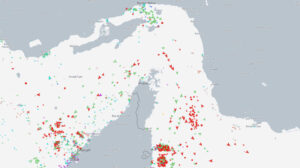In January 2017, Finland began paying a random sample of 2,000 unemployed people aged 25 to 58 a monthly 560 euros (£475).
There was no obligation to seek or accept employment during the two year trial ordered by the centre-right government, who run the country on austerity economics.
If they did take a job, they would continue to receive the same payment, regardless.
The trial is one of universal basic income (UBI), hoping that the payments would reduce overall social security costs and bring down the unemployment rate, incentivizing people to take up paid work, or contribute to society as volunteers.
The scheme has received global media attention and is seen as a watershed for the progressive movement, should the results be positive.
Anecdotally, early indication are that they will be.
Marjukka Turunen, who heads the legal unit at Finland’s social security agency, Kela, told the Guardian:
One participant has said she is less anxious because she no longer has to worry over calls from the job centre offering a job she can’t accept because she is caring for her elderly parents.
We may be able to see from the trial data whether it has had unintended benefits – such as reduced medical costs.
Juha Jarvinen, one of the triallists who is 39 and married with six children and a dog, told the BBC:
I felt like a free man. I got out from jail and slavery…I felt I am back in society and I have my humanity back, so I was super happy.
Juha runs a business making drums that brings in around 1000 euros a month on top of the 560 he receives in UBI. He says without the UBI, he wouldn’t have been able to get back to work.
Critics of the Finnish trial say that it only includes people who were unemployed, rendering it not “universal”.
The Scottish government will start looking at similar trial proposals at the end of March 2018.
First Minister Nicola Sturgeon has previously said of UBI:
It might turn out not to be the answer, it might turn out not to be feasible.
But as work changes as rapidly as it is doing, I think its really important that we are prepared to be open-minded about the different ways that we can support individuals to participate fully in the new economy.
Source: indy100
Ask me anything
Explore related questions





